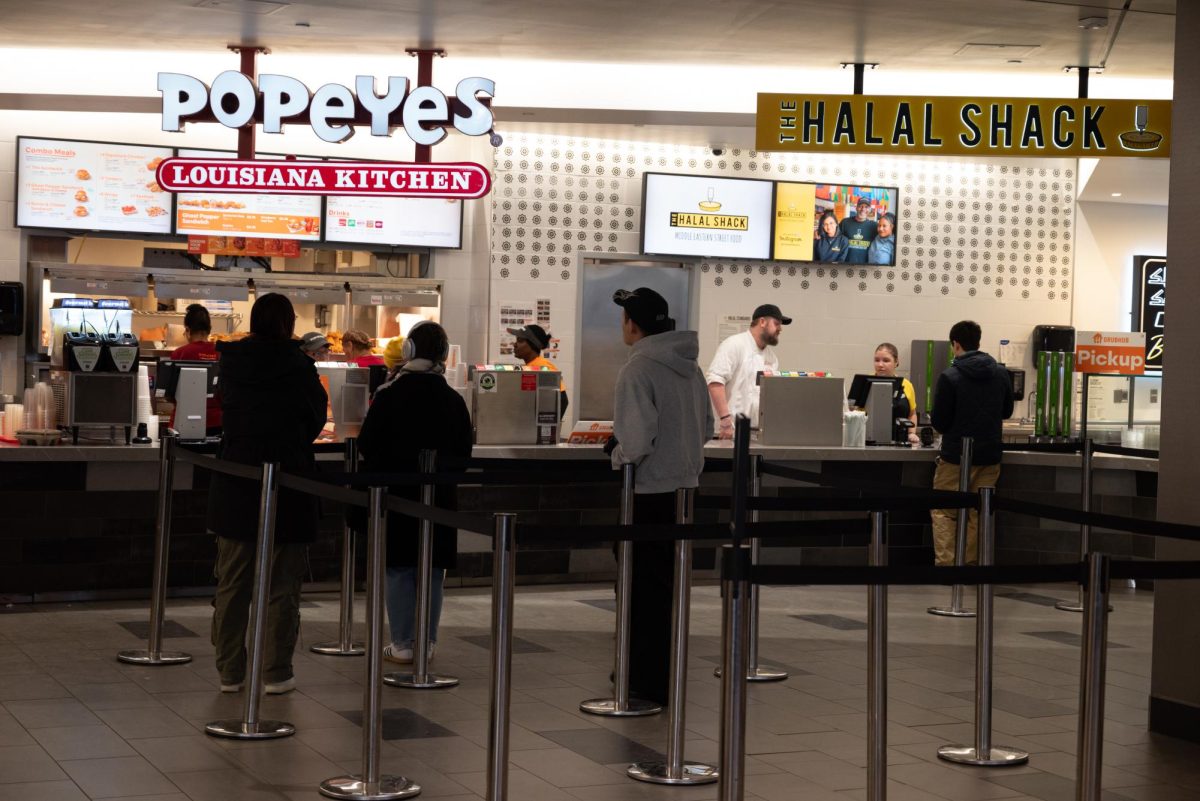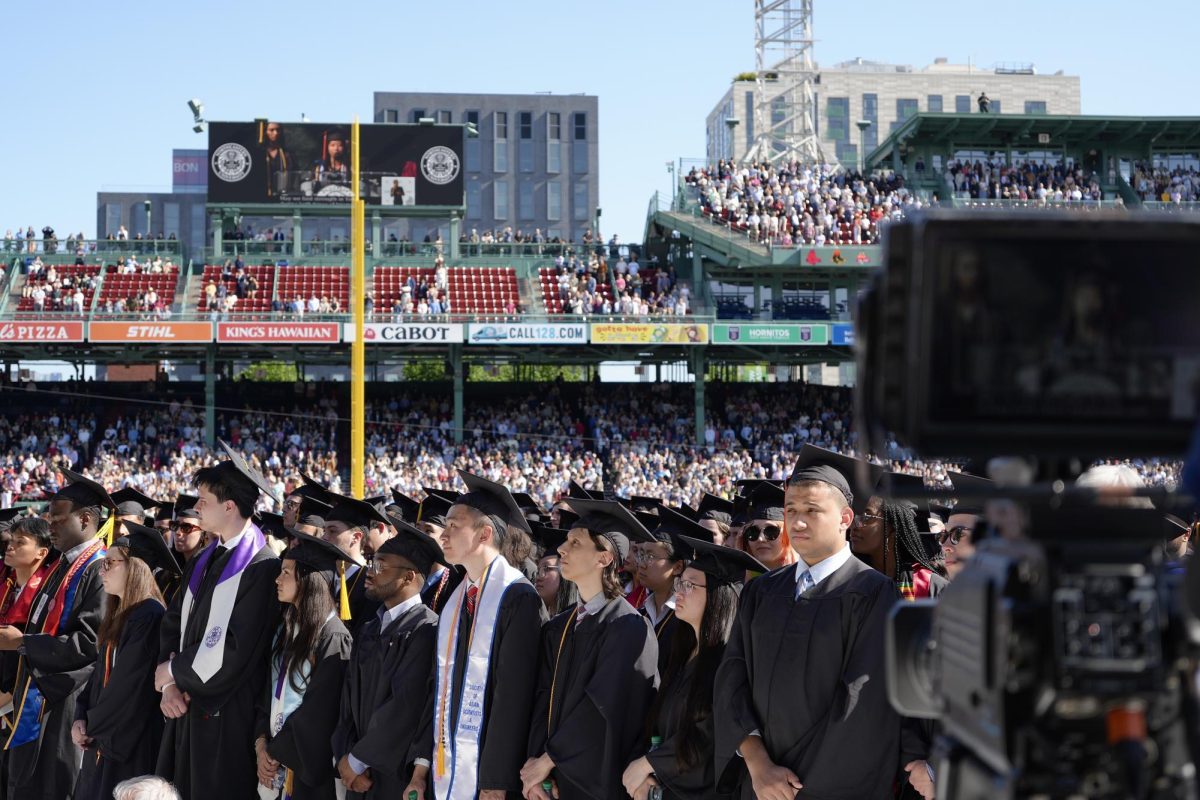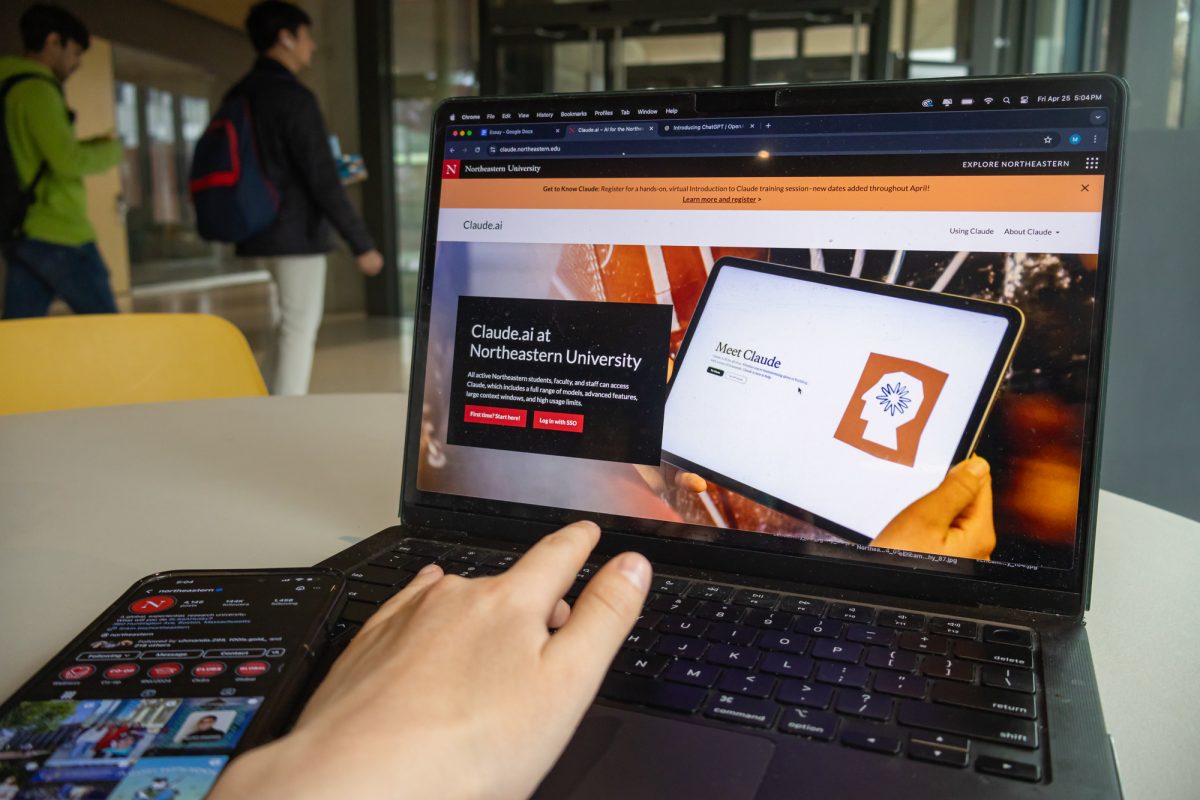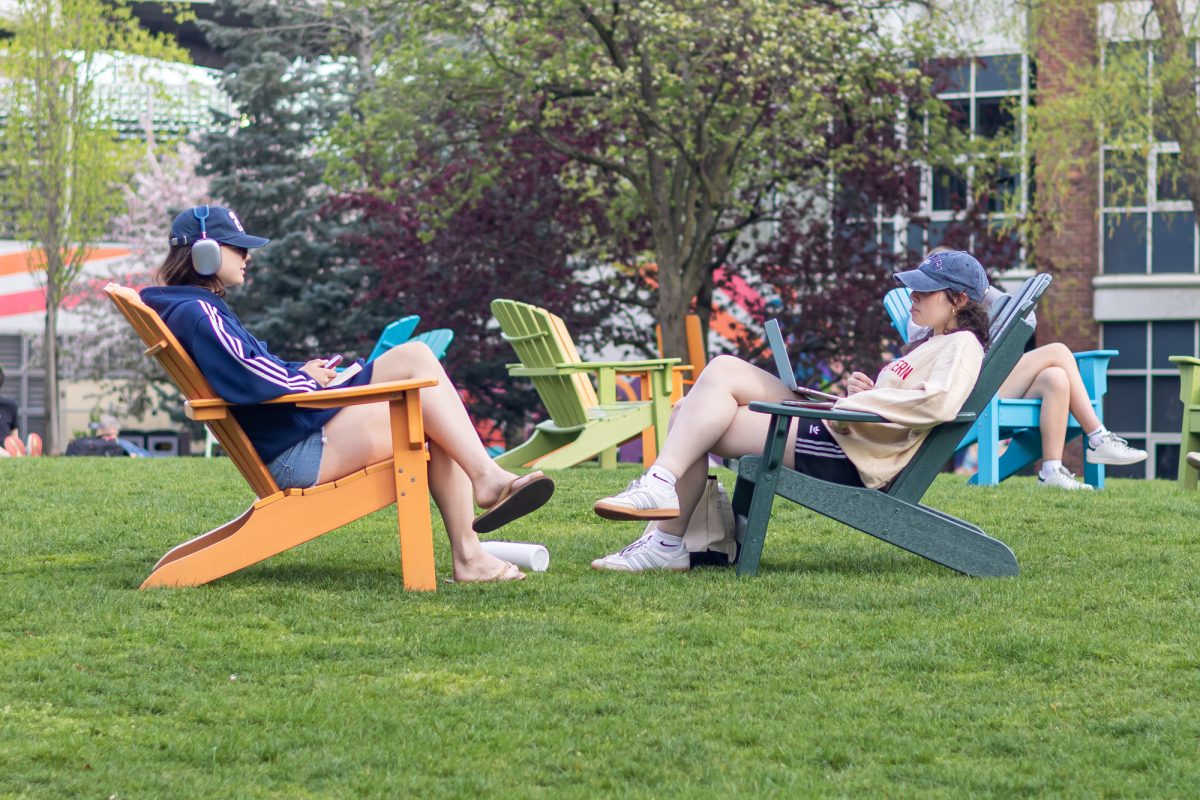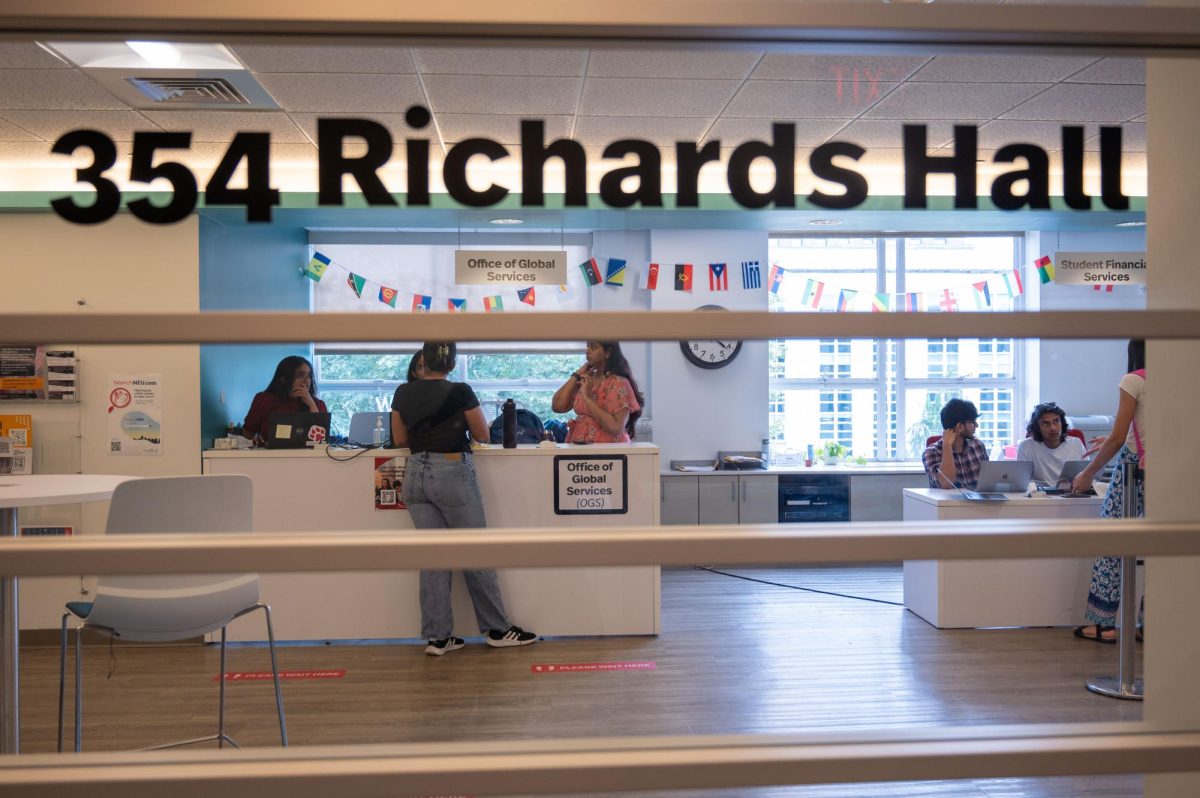“What happened to meal exchanges?”
If you’ve been on campus this past semester, chances are you’ve asked this question yourself or overheard it in passing. As chair of the Student Government Association, or SGA, Dining Advisory Board, or DAB, I’ve heard it too — along with countless other questions about the changes to the meal plans that occurred during the fall 2024 semester.
These newly implemented meal plan changes have sparked passionate reactions across the Northeastern student body. Some are thrilled about the newfound flexibility, while others are confused or frustrated about the loss of familiar features like meal exchanges. Meal exchanges were a program that allowed students to exchange a few of their swipes per week to on-campus vendors.
However, I challenge our student body to reflect on the bigger picture while I answer the following: Why were these changes necessary? What was the process of implementing them? And how do they represent a step toward a more inclusive and equitable dining system?
Prior to my time on the DAB, I joined SGA’s Campus Services Committee during the fall of 2023, in hopes of making a tangible difference on Northeastern’s student life. Within this committee, I was able to help the founders of the DAB collect key information about issues students have with dining plans. Later in the spring of the same year, I joined as the DAB’s first-year representative, a mandatory position that ensures the board gets direct representation from first-year students, the constituent group most impacted by dining changes on campus. I was curious what reforms were being proposed and how they would impact the student body. The DAB’s hands-on work in collaboration with the administration, specifically NU Dining and other on-campus clubs like Slow Foods, inspired me to climb higher in my own organization so that now I can be the change I want to see. With our work on the dining plan over the 2023-24 school year, I am proud of the work that I have been a part of and am excited to share our plans with the student body we serve.
The roots of this reform stretch back to 2020, when Northeastern’s Young Democratic Socialists of America launched the No Hungry Huskies campaign, calling on Northeastern’s administration to address student food insecurity. Their advocacy ignited a long-overdue conversation about the accessibility and affordability of dining on campus. Inspired by their work, key No Hungry Husky campaign members founded the DAB to serve as the official voice of students in dining-related decisions.
Since its inception, the DAB has been a collaborative body that bridges the gap between students and administrators. Comprising undergraduate and graduate students alike, as well as representatives from organizations like Slow Foods, the Resident Student Association and Graduate Student Government, the board is as diverse as the community it represents.
The goal of the new meal plans was ambitious but clear: make them more affordable, flexible and aligned with students’ needs. But meaningful change doesn’t come easily, and we knew we would face tough decisions and trade-offs.
In my opinion, the most significant change in the meal plan was moving from weekly meal swipes to semesterly ones. Under the old system, students were locked into a fixed number of weekly swipes that expired every Sunday, leaving many with unused meals every week. This rigid structure simply didn’t reflect the realities of student life. Through focus groups, tabling events and creative forums like our Rocky Horror Dinner Show, we heard from over 1,000 students about their dining experiences and habits. A staggering 83% of students rarely used all their swipes in a given week.
The new semesterly swipe model is a direct response to this feedback. The hope was that it would give students the freedom to use their swipes as they see fit, accommodating travel, holidays and unpredictable schedules. The Swipe2Care program, a program that allows students to donate unused swipes to peers in need, was also revamped in tandem. The donated swipes now roll over to the next semester, a step in creating a more sustainable and impactful system.
One of the trade-offs we had to make was the contentious elimination of meal exchanges — the ability to use swipes at retail vendors like Starbucks or Taco Bell. While the concept was popular, the reality often left students feeling shortchanged. Many students mentioned to us that using a meal exchange provided them with meals that were not comparable in value to dining hall swipes that were worth $13 to $23 and had far more limited options. In their place, we introduced more dining dollars, giving students greater purchasing power and variety at retail vendors.
For the first time, graduate students were also included in meal plan offerings through the new Community Plans. These plans, which expand on the old profiler plans, offer reduced swipe costs and bonus bucks while allowing students to add swipes mid-semester. This change addresses long-standing inequities in dining access and ensures that more of our community is served.
As student body representatives, cost is at the forefront of every decision we make. Before these reforms, Northeastern’s unlimited meal plan was 14% more expensive than prominent surrounding universities. The new plans not only narrow this gap but actually make Northeastern’s offerings more competitive. Compared to 2024, our meal plans are now 8%-10% cheaper on a per-swipe basis.
Meanwhile, other Boston universities have seen price hikes this year. For instance, Tufts University’s highest meal plan is now 6% more expensive than Northeastern’s, and Harvard’s is now 5% more expensive than Northeastern’s. While dining costs will always be a concern, I believe these reforms represent a meaningful step toward affordability in a notoriously expensive city.
Let’s be clear: The new meal plans aren’t perfect. Trade-offs were inevitable, and not every change has been universally welcomed. But progress often requires bold action, and I believe these reforms ultimately mark a significant improvement over the status quo.
There’s still work to be done. This year, the DAB is committed to evaluating how well the new plans align with student needs, advocating for greater menu variety and spreading awareness about how students can maximize their meal plans.
If you’re passionate about improving campus dining, there are countless ways to get involved. There are many student organizations actively working on dining-related issues; the DAB is just one of them.
So the next time you hear someone ask, “What happened to meal exchanges?” take it as an opportunity to join the conversation. Change starts with curiosity, and every question brings us one step closer to a dining system that works for everyone.
Lily Pospesil is a second-year Political Science & Economics major, SGA’s DAB chair for fall 2024, and vice-chair for spring 2025. She can be reached at SGACampusAffairs@northeastern.edu or pospesil.l@northeastern.edu.


